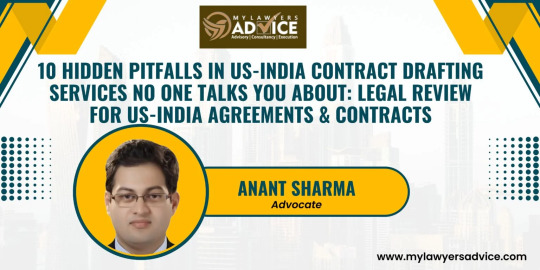#comprehensive legal services
Explore tagged Tumblr posts
Text
Discover the long-term benefits of having a solicitor in your corner. From saving time and money to avoiding legal pitfalls, retaining a solicitor ensures your assets are well-managed and your financial legacy is secure. Learn how Wills & Trusts Wealth Management can provide expert legal support for all life's challenges and opportunities.
#retain a solicitor#legal support#financial well-being#UK solicitors#Wills & Trusts Wealth Management#legal advice#continuous legal support#solicitor benefits#professional legal services#expert legal guidance#comprehensive legal services#personalised legal strategies
0 notes
Text
Website : https://en.intertaxtrade.com
Intertaxtrade, established in the Netherlands, excels in facilitating international business and assisting individuals in Europe with integrated solutions in tax, finance, and legal aspects. Registered with the Chamber of Commerce, they offer services like company management in the Netherlands, Dutch company accounting, tax intermediation, international tax planning, business law consulting, EU trademark and intellectual property registration, international trade advice, and GDPR compliance. Their expertise in financial and accounting services ensures clients have a clear financial overview, aiding in business success.
Facebook : https://www.facebook.com/intertaxtrade
Instagram : https://www.instagram.com/intertaxtrade/
Linkedin : https://www.linkedin.com/in/ramosbrandao/
Keywords: company registration netherlands legal advice online comprehensive financial planning financial planning consultancy international business services international business expansion strategies gdpr compliance solutions international trade consulting european investment opportunities gdpr compliance consulting services in depth financial analysis gdpr compliance assistance cross border tax solutions netherlands business environment european union business law dutch accounting services tax intermediation solutions international tax planning advice eu trademark registration services investment guidance online business law consultancy corporate tax services netherlands financial analysis experts business immigration support startup legal assistance online european market entry consulting international financial reporting services business strategy netherlands tax authority communication support international business law expertise dutch commercial law advice global business strategy services european business consulting online international business services platform expert legal advice online efficient company registration netherlands reliable dutch accounting services strategic tax intermediation proactive international tax planning eu trademark registration support tailored investment guidance specialized business law consultancy dynamic international trade consulting holistic corporate tax services netherlands streamlined business immigration support online startup legal assistance strategic international business expansion european market entry planning innovative cross border tax solutions navigating the netherlands business environment european union business law insights accurate international financial reporting proven business strategy netherlands exclusive european investment opportunities seamless tax authority communication in depth dutch commercial law advice comprehensive global business strategy proactive european business consulting one stop international business services personalized financial planning solutions expert legal advice for businesses quick company registration in netherlands trustworthy dutch accounting services strategic tax intermediation solutions innovative international tax planning efficient eu trademark registration tailored investment guidance online business law consultancy expertise comprehensive corporate tax services netherlands thorough financial analysis support streamlined business immigration assistance navigating netherlands business environment european union business law guidance international financial reporting accuracy business strategy for netherlands market european investment opportunities insights efficient tax authority communication international business law excellence dutch commercial law proficiency global business strategy implementation european business consulting excellence comprehensive international business services proactive financial planning strategies expert legal advice on international matters
#company registration netherlands#legal advice online#comprehensive financial planning#financial planning consultancy#international business services#international business expansion strategies#gdpr compliance solutions#international trade consulting#european investment opportunities#gdpr compliance consulting services#in depth financial analysis#gdpr compliance assistance#cross border tax solutions#netherlands business environment#european union business law#dutch accounting services#tax intermediation solutions#international tax planning advice#eu trademark registration services#investment guidance online#business law consultancy
4 notes
·
View notes
Text

Dependable NRI Assistance for Legal, Travel, and Property Needs
Murvin NRI Services offers dependable assistance for legal, travel, and property needs in India. Simplify your connection with expert solutions tailored for NRIs.
#Dependable NRI assistance#Legal aid India#Travel services India#Property solutions#Murvin NRI#Global Indians#NRI support services#Hassle-free India connection#Comprehensive NRI solutions#Trusted NRI partner
0 notes
Text
Top 10 FAQs on Exit Route for Foreign Investors for their Struck Investments in India’s Real Estates & Properties: Best Legal Advice for Foreign Investors in India

What are the common exit routes available to foreign investors in struck real estate investments in India? Answer: Common exit routes include selling the property on the open market, entering into joint ventures with local developers, seeking buyback options from the developer, or exploring options for listing the property on the stock exchange
#Delhi NCR repatriation strategy FAQs#Delhi NCR lawyer for fund repatriation foreign investors.#corporate lawyer Delhi NCR#comprehensive legal support for repatriation of funds India#best legal services to incorporate Corporation in India
0 notes
Text
0 notes
Text
Immigration Law Firm
If you require expert legal representation for immigration matters, Immigration Services is a distinguished immigration law firm ready to assist you. Our team of skilled attorneys specializes in handling a wide range of immigration issues, including visa applications, permanent residency, citizenship, and legal compliance. We offer comprehensive legal support to navigate the complexities of immigration law, ensuring that your case is managed with the highest level of professionalism and attention to detail. Whether you're dealing with intricate legal challenges or seeking guidance on immigration processes, our immigration law firm is committed to providing effective solutions and achieving favorable outcomes. Visit our website to learn more about how our immigration law firm can support you in reaching your immigration goals. Read More
#If you require expert legal representation for immigration matters#Immigration Services is a distinguished immigration law firm ready to assist you. Our team of skilled attorneys specializes in handling a w#including visa applications#permanent residency#citizenship#and legal compliance. We offer comprehensive legal support to navigate the complexities of immigration law#ensuring that your case is managed with the highest level of professionalism and attention to detail. Whether you're dealing with intricate#our immigration law firm is committed to providing effective solutions and achieving favorable outcomes. Visit our website to learn more ab#3d printing#accounting#60s#acne#70s#adobe#1950s#alex hirsch#aesthetic#80s
1 note
·
View note
Text

#criminal law firms#Delhi#legal solutions#expertise#dedicated lawyers#rights protection#top-notch representation#client-centric approach#personalized attention#comprehensive services#professional guidance#reliable support#justice#legal expertise#consultation#legal representation
0 notes
Text
Things Biden and the Democrats did, this week #10
March 15-22 2024
The EPA announced new emission standards with the goal of having more than half of new cars and light trucks sold in the US be low/zero emission by 2032. One of the most significant climate regulations in the nation’s history, it'll eliminate 7 billion tons of CO2 emissions over the next 30 years. It's part of President Biden's goal to cut greenhouse gas emissions in half by 2030 on the road to eliminating them totally by 2050.
President Biden canceled nearly 6 Billion dollars in student loan debt. 78,000 borrowers who work in public sector jobs, teachers, nurses, social workers, firefighters etc will have their debt totally forgiven. An additional 380,000 public service workers will be informed that they qualify to have their loans forgiven over the next 2 years. The Biden Administration has now forgiven $143.6 Billion in student loan debt for 4 million Americans since the Supreme Court struck down the original student loan forgiveness plan last year.
Under Pressure from the administration and Democrats in Congress Drugmaker AstraZeneca caps the price of its inhalers at $35. AstraZeneca joins rival Boehringer Ingelheim in capping the price of inhalers at $35, the price the Biden Admin capped the price of insulin for seniors. The move comes as the Federal Trade Commission challenges AstraZeneca’s patents, and Senator Bernie Sanders in his role as Democratic chair of the Senate Health Committee investigates drug pricing.
The Department of Justice sued Apple for being an illegal monopoly in smartphones. The DoJ is joined by 16 state attorneys general. The DoJ accuses Apple of illegally stifling competition with how its apps work and seeking to undermining technologies that compete with its own apps.
The EPA passed a rule banning the final type of asbestos still used in the United States. The banning of chrysotile asbestos (known as white asbestos) marks the first time since 1989 the EPA taken action on asbestos, when it passed a partial ban. 40,000 deaths a year in the US are linked to asbestos
President Biden announced $8.5 billion to help build advanced computer chips in America. Currently America only manufactures 10% of the world's chips and none of the most advanced next generation of chips. The deal with Intel will open 4 factories across 4 states (Arizona, Ohio, New Mexico, and Oregon) and create 30,000 new jobs. The Administration hopes that by 2030 America will make 20% of the world's leading-edge chips.
President Biden signed an Executive Order prioritizing research into women's health. The order will direct $200 million into women's health across the government including comprehensive studies of menopause health by the Department of Defense and new outreach by the Indian Health Service to better meet the needs of American Indian and Alaska Native Women. This comes on top of $100 million secured by First Lady Jill Biden from ARPA-H.
Democratic Senators Bob Casey, Tammy Baldwin, Sherrod Brown, and Jacky Rosen (all up for re-election) along with Elizabeth Warren, Cory Booker, and Sheldon Whitehouse, introduced the "Shrinkflation Prevention Act" The Bill seeks to stop the practice of companies charging the same amount for products that have been subtly shrunk so consumers pay more for less.
The Department of Transportation will invest $45 million in projects that improve Bicyclist and Pedestrian Connectivity and Safety
The EPA will spend $77 Million to put 180 electric school buses onto the streets of New York City This is part of New York's goal to transition its whole school bus fleet to electric by 2035.
The Senate confirmed President Biden's nomination of Nicole Berner to the Court of Appeals for the Fourth Circuit. Berner has served as the general counsel for America's largest union, SEIU, since 2017 and worked in their legal department since 2006. On behalf of SEIU she's worked on cases supporting the Affordable Care Act, DACA, and against the Defense of Marriage act and was part of the Fight for 15. Before working at SEIU she was a staff attorney at Planned Parenthood. Berner's name was listed by the liberal group Demand Justice as someone they'd like to see on the Supreme Court. Berner becomes one of just 5 LGBT federal appeals court judges, 3 appointed by Biden. The Senate also confirmed Edward Kiel and Eumi Lee to be district judges in New Jersey and Northern California respectively, bring the number of federal judges appointed by Biden to 188.
#Thanks Biden#Joe Biden#Democrats#politics#US politics#climate change#climate crisis#student loans#debt forgiveness#shrinkflation#women's health#drug prices
459 notes
·
View notes
Text
A Comprehensive List Of Jack's Canon Chirps
"Bittle, HEADS UP!" [Bitty passes out] "…Or get into fetal position at central ice. That's also an option."
"You've never seen the sun rise from a rink, eh? Thought you were a figure skating champion."
Bitty: "A fist bump! I didn't know you did those." Jack: "Ha - you gotta work for them."
"The sad thing is, I can tell he's lying not because of the library part? But because he'd never leave a pie unattended."
"Oh and Bittle, before I forget. This summer? Eat more protein."
"When you get Youtube famous don't go out and chirp me all over the internet, eh? 'Night."
"How many of those tweets do you start with oh my god y'all?"
"It's way too easy to make you laugh. Make sure you tweet that." [looks over Bitty's shoulder to make sure he tweets that]
[texts Bitty a smiley face] [follows up with:] "Sorry that was a typo."
"You only tweeted twice while we were working, Bittle. That's a record."
[Bitty gets knocked over] "I guess you're looking for extra checking practice, eh, Bittle?"
"We should get going and let Bittle here text about his walk to class."
Bitty: "E-excuse you, but my kitchen is no place for checking!" Jack: "…Your kitchen?" Bitty: "Well, the kitchen! Now move your big -- uhm." Jack: "My big…?"
[At Thanksgiving] "All that turkey's gonna make you slow for tomorrow, Chowder."
[To a kid wearing a Brad Marchand jersey while asking for Jack's autograph] "You know this isn't me, right?"
"17." [At Bitty's confusion:] "That's the number of pies you baked in September. In case you were wondering where your time went."
"I'm sure you'd be done [with your history essay] too if you had tweeted it. Is that an option?"
[looks at Bitty's tweets] "I said where'd you get that camera not is that the camera you use. Come on, Bittle."
[finds Bitty's surprise cookies] "I'm surprised your cookies got through costumes Bittle."
"I told my mom about all your tweeting? She says you're not following her. I'm more surprised than offended, Bittle."
"Shitty, don't you think I should get a tweet transcript or something since he quotes me so much? For legal purposes."
"Hey, Bittle. That Daily reporter didn't rope you into an interview after that jump?"
[after meeting Farmer] "She was nice, eh? Cute. …I bet you're texting about our lunch now."
[Nursey accidentally hits a kid in the face with his hockey bag] "Nice check, Nurse."
[in the middle of the night] "I figured you'd be up baking a pie or three."
[Bitty gets shoe-checked] "Hey, it's no shoes, no shirt, no service, Bittle."
"Whose shoulders are you going to sit on at Spring C, Bittle?"
[Shitty tears up while kissing the ice] "Crying a bit there, eh?"
[SMH buy Bitty a new oven] Bitty: "I need to bake something right this second!" Jack: "Stop crying first."
"If we move the kitchen table out, you can bring your bed in."
[About graduating] "The biggest change is probably my diet. Less pie."
"And hey, it's a bit different than you and Lardo, eh? Since everyone knew you were in love with her since sophomore year."
[during Falcs Faceoff] Teammate: "Heard you've never lost one a these, I'm scared." Jack: "Yeah, you should be."
[Gets chirped for dating Bitty] "This is a Samwell hockey record. Chirps lasting longer than the ones re: Holster & Esther S." Holster: "…Jack." Jack: ":)"
Nursey: "Yo, Bitty do you remember any French?" Jack: "No." Bitty: "I can speak for myself, Mr. Zimmermann." Jack: "Well. Not in French."
[To Marty & Thirdy] "Hauling your kids around on a sled just about wore you guys out, eh?"
[To Tater] "Potato champ needs more sleep, eh?"
"Bitty? Hey, bud, come on, say something -" [Bitty passes out] "Or you can pass out at center ice. I'm getting deja vu."
#omgcp#omgcheckplease#jack zimmermann#zimbits#I meant to do a VERY SERIOUS reread of the comic but then I couldn't help myself#what do you MEAN this isn't my best post ever#text
772 notes
·
View notes
Text
A writer’s guide to the historical method: how historians work with sources
In this post, I provide a brief overview of how historians engage with different types of sources, with a focus on the mindset of a historian. This insight could be valuable for anyone crafting a character whose profession revolves around history research. It may also prove useful for authors conducting research for their book.
Concept of historical source
The concept of historical source evolves over time.
Initially, the focus was mainly on written sources due to their obvious availability. However, as time has progressed, historians now consider a wide range of sources beyond just written records. These include material artifacts, intangible cultural elements, and even virtual data.
While "armchair historians" may rely on existing studies and secondary sources, true professional historians distinguish themselves by delving directly into primary sources. They engage in a nuanced examination of various sources, weaving together diverse perspectives. It's crucial to recognize the distinction between personal recollection or memory and the rigorous discipline of historical inquiry. A historical source provides information, but the truth must be carefully discerned through critical analysis and corroboration.
Here's a concise list of the types of sources historians utilize:
Notarial source
Epistolary source
Accountancy source
Epigraphic source
Chronicle source
Oratory and oral source
Iconographic source
Diary source
Electronic source
Example: a notarial source
These are documents drafted by a notary, a public official entrusted with providing legal certainty to facts and legal transactions. These documents can take various forms, such as deeds, lawsuits, wills, contracts, powers of attorney, inventories, and many others.
Here we are specifically discussing a lawsuit document from 1211 in Italy.
A medieval lawsuit document is highly valuable for understanding various aspects of daily life because in a dispute, one must argue a position. From lawsuits, we also understand how institutions truly operated.
Furthermore, in the Middle Ages, lawsuits mostly relied on witnesses as evidence, so we can access a direct and popular source of certain specific social situations.
Some insight into the methodology of analysis:
Formal examination: historians scrutinize the document's form, verifying its authenticity and integrity. Elements such as structure, writing style, language, signatures, and seals are analyzed. Indeed, a professional historian will rarely conduct research on a source published in a volume but will instead go directly to the archive to study its origin, to avoid transcription errors.
Content analysis: historians proceed to analyze the document's content, extracting useful information for their research. This may include data on individuals, places, events, economic activities, social relations, and much more. It's crucial to compile a list of witnesses in a case and identify them to understand why they speak or why they speak in a certain manner.
Cross-referencing with other sources: information derived from the notarial source is compared with that of other historical sources to obtain a more comprehensive and accurate view of the period under examination.
Documents of the episcopal archive of Ivrea
Let's take the example of a specific legal case, stemming from the documents of the episcopal archive of Ivrea. It's a case from 1211 in Italy involving the bishop of Ivrea in dispute with Bongiovanni d'Albiano over feudal obligations.
This case is significant because it allows us to understand how feudal society operated and how social status was determined.
The bishop's representative argues that Bongiovanni should provide a horse as a feudal service. Bongiovanni denies it, claiming to be a noble, not a serf. Both parties present witnesses and documents supporting their arguments.
Witnesses are asked whether the serf obligations had been endured for a long time. This helps us understand that in a society where "law" was based on customs, it was important to ascertain if an obligation had been endured for a long time because at that point it would no longer be contestable (it would have become customary).
The responses are confused and inconsistent, so witnesses are directly asked whether they consider Bongiovanni a serf or a noble. This is because (and it allows us to understand that) the division into "social classes" wasn't definable within concrete boundaries; it was more about the appearance of one's way of life. If a serf refused to fulfill his serf duties, he would easily be considered a noble by bystanders because he lived like one.
Ultimately, the analysis of the case leads us to determine that medieval justice wasn't conceived with the logic of our modern system, but was measured in oaths and witnesses as evidentiary means. And emerging from it with honor was much more important than fairly distributing blame and reason.
Other sources
Accounting source: it is very useful for measuring consumption and its variety in a particular historical period. To reconstruct past consumption, inventories post mortem are often used, which are lists of goods found in households, described and valued by notaries to facilitate distribution among heirs. Alternatively, the recording of daily expenses, which in modern times were often very detailed, can lead to insights into complex family histories and their internal inequalities - for example, more money might be spent on one child than another corresponding to their planned future role in society.
Oral source: in relation to the political sphere, it is useful for representing that part of politics composed of direct sources, that is, where politics speaks of itself and how it presents itself to the public, such as a politician's public speech. However, working with this type of source, a historian cannot avoid hermeneutic work, as through the speech, the politician aims to present himself to a certain audience, justify, persuade, construct his own image, and achieve results. This is the hidden agenda that also exists in the most obvious part of politics.
Iconographic source: it concerns art or other forms of "artistic" expression, such as in the case of an advertising poster. They become historical sources when it is the historian who, through analysis, confers upon them the status of a historical source. Essentially, the historian uses the source to understand aspects of the past otherwise inaccessible. The first step in this direction is to recontextualize the source, returning it to its original context. Examining the history of the source represents the fundamental first step for historical analysis.
Diary source: diaries are a "subjective" source, a representation of one's self, often influenced by the thoughts of "others," who can be close or distant readers, interested or distracted, visible or invisible, whom every diary author can imagine and hope to see, sooner or later, reflected on the pages of their writing. Furthermore, they are often subject to subsequent manipulations, and therefore should be treated by historians only in their critical edition; all other versions, whether old or new, foreign or not, are useful only as evidence of the changes and manipulations undergone over time by the original manuscripts.
Electronic source: historians use Wikipedia even if they often don't admit it out loud.
This blog is supported through tips here on Tumblr. If you’d like to support me, please consider giving a tip.
#writing advice#writing help#writing reference#writing tips#creative writing#fantasy worldbuilding#fantasy writing#worldbuilding#worldbuilding tips
402 notes
·
View notes
Note
Fuck Hybe and Fuck Min Heejin. I hate how they keep using their artists as meat shields.
Hybe made this whole thing public to try to use MHJ as a scapegoat to all of their wrongdoings, and used their artists for sympathy to get the public on their side.
Then Min Heejin manipulated NewJeans into ruining their careers for her and put this horrible mentality in their mind that they're nothing without her.
Then we find out Hybe has been mistreating Taehyung, letting the people who leaked Jimin's personal documents go without taking any legal action, committing fraudulent album sales, and prioritizing gaining money over their artists protection and wellbeing.
And now, Min Heejin is trying to use Taehyung for sympathy points by bringing up something that happened last year, and pretending she's his friend. He's already dealing with the hardships of military service and now she drags him into her mess. If she was really his friend she wouldn't use him like this, especially at such a delicate time for him.
I hope all the artists are well. I can't imagine how hard it's been for them to deal with all the consequences of the company's mistakes. I just wanna give them all a huge hug 😢💜
Let's protect ourselves as well, as infuriating as it is, we can't let this mess take over our lives and ruin our days. The best we can do is support the artists and remind them about how loved they are. Taking sides and sending hatred is only helping the perpetrators fight each other.
I hope you're doing well!
Borahae 💜
Hey @moo-mood
I understand what you are saying but I think some of the points your brought up are pure conjecture as there is not a single shred of proof from the documents that shows that any of the BTS members are being mistreated. I think that fans are so sensitive of their idols they don’t understand the difference between a label having an opinion on an artist and an artist actually being mistreated.
I have seen people read and misunderstand those documents and I don’t even know where to start from in correcting some of those things. I have seen Tae’s fans promise to bring down the company because apparently the company has been sabotaging Taehyung but there is actually nothing in those documents that support this claim. They had an opinion on Tae’s album and suddenly that was sabotage to Tae stans. The same way they mentioned that Tae’s dating rumors might have helped other members live more peacefully in their private lives and Tae fans took that to mean that Hybe orchestrated the rumours so other members could live freely. The lack of reading comprehension or even understanding what those documents were about in the first place is truly astounding.
Don’t get me wrong though. I don’t for one moment think that company is innocent. As a matter of fact I think they are just as dirty as any other entertainment company and everyone with a brain knows that for these companies to get so big, they have to dip their feet in dirty waters and Hybe definitely is no different. They all have to play the dirty game to keep up with the competition and taekookers are acting like they were right all along and are trying to link every mention of Jk , Tae and Jimin in those documents to a nonexistent romance between Tae and Kook. I don’t think of Bang PD as a saint but I think he actually cares about BTS members and this isn’t because of anything he does or says but because of what the members do and say and how I have seen them around him for years. Watching them, you could easily tell that he didn’t treat them like a boss would but actually like his little friends or younger brothers. You see how he allowed the boys to be able to give him their honest opinions of how he ran things starting from Rookie king when he made it possible for the boys to climb that platform and yell out any grievances they had towards him or anyone else and how Jimin wasn’t afraid to tell him that his previous melody for DNA sucked and he listened and changed it . That is not a dictator. That is not something someone who doesn’t care about the boys or their opinions would do. You also see how freely they tease him, how happy they seem around him, they even have this funny drawing of him that they always laugh about, the even go as far as teasing him about his weight and he just laughs it off.


They have spoken endlessly about how well he treats them and about how good he has been to them. He is usually in the habit of treating the boys to one on one meals and even invited Jin over and cooked for him. We even see how closely Jungkook worked with him in the solo era and I’m sure working with him wasn’t the only option he had.
One thing that I have always found funny is that Tae stans swear that Tae detests bang PD but watch these videos
youtube
And this one
youtube
Is this how people behave with someone who maltreats them? Pay attention to the part where bang pd calls them after they win first place, Tae is the one excitedly holding the phone and calling him “shiyuk hyung” instead of referring to him with more professional appellations. Also recently, bang pd did a show or something of the sort with JYP and Taehyung screenshotted it and posted it on his instagram story and captioned it something like “does this mean he “JYP” is now my uncle?” Why on earth would he do this if he hated bang pd? Why would he do this if he was sabotaged and mistreated so much by the company?
I think Bang PD is a piece of work and is just like any other money hungry and egotistical boss is but I think he always cared about BTS, I mean that was his first group and they came up together from nothing to something. This isn’t to say that they probably haven’t had misunderstandings but generally I think they have a good relationship with the company regardless of what some fans think.
As for Min Hee Jin, I am somewhat indifferent about her because I don’t know enough about her to form a strong opinion and I Know that in her fight with Hybe, both parties are definitely guilty of things but I think her move to mention how Tae contacts her amidst all of this was low, even for her. Dragging the members into their fights to gain sympathy is low and she knew exactly what she was doing because now she has supporters from within the fandom who are Tae stans and that is because they think she cares about him and Tae likes her. She claims she cares about NJs but look at the nasty things she said about them.
Anyways, hun, let’s just trust in the members and know that they are old enough to take care of themselves and know what is good for them and what isn’t. If at all they are being mistreated, I trust that they would know how to deal with it.
Thanks💜
73 notes
·
View notes
Text

Expert NRI Solutions Banking, Legal, and Investment Services in India
Murvin NRI Services provides expert solutions for banking, legal, and investment needs in India. We streamline processes to connect NRIs seamlessly with their Indian roots.
#NRI banking#Legal services India#NRI investments#Murvin NRI#Global Indians#NRI assistance#India connection#NRI property solutions#Simplify India life#Comprehensive NRI services
0 notes
Text
STARKSTRESSER -PLATİN

In a digital landscape where stability and performance are paramount, StarkStresser offers cutting-edge solutions designed to elevate your online presence. Whether you are a gamer seeking a competitive edge or a developer ensuring robust application performance, our comprehensive suite of tools—including advanced IP stressers and free IP booters—caters to a multitude of needs. With a focus on delivering seamless connectivity and unparalleled reliability, StarkStresser empowers users to effectively test their networks under simulated conditions.
Stresser
A stresser is an online tool designed primarily for testing the resilience of networks and servers against various types of attacks. It simulates Distributed Denial of Service (DDoS) attacks, which can overwhelm a server by flooding it with traffic, and it is crucial for organizations to understand how resilient their infrastructure is to such threats. Using a stresser can help businesses identify vulnerabilities in their systems and improve security measures.
However, it's essential to note that the ethical use of stress testing tools is paramount. Users should only test devices and networks they own or have explicit permission to test. Misuse of a stresser can lead to legal consequences, including potential fines and imprisonment.
When searching for a reliable ip stresser, it’s vital to look for one that provides clear usage guidelines and supports ethical considerations. Many reputable services also offer features that allow users to simulate attacks within controlled environments, enabling businesses to prepare better for real-world cyber threats.
In the realm of cybersecurity, understanding the capabilities of a stresser can empower organizations to actively defend against potential attacks. Be sure to research any selected tool thoroughly, ensuring it aligns with your security testing needs and ethical standards.
Ip Stresser
An IP stresser is a tool or service designed to test the resilience of a network or website against various types of stress attacks. Often utilized by web administrators and security professionals, an IP stresser can simulate considerable traffic to help evaluate the potential vulnerabilities of a specific IP address or server. This testing can help organizations strengthen their defenses against actual malicious attacks.
However, it is crucial to note that the use of an ip stresser should always be conducted ethically and legally. Using it to attack or disrupt services without authorization is illegal and can lead to severe consequences. Always ensure you have the necessary permissions to conduct such tests on a network or system.
In the context of stress testing, there are various types of IP stressers available, which can differ in their methods and intensity. Some users prefer IP stressers that offer adjustable parameters to customize the attack, while others might seek those with user-friendly interfaces that can deliver quick results.
Another vital aspect to consider is the choice between premium and free IP stressers. While free versions can be tempting due to their no-cost nature, they often come with limitations in terms of performance and reliability. Paid options typically provide more robust features, better support, and a more reliable service, making them suitable for serious testing purposes.
As you explore various IP stressers, it’s essential to choose one that aligns with your specific needs, whether you're looking for free solutions or comprehensive paid services. Always prioritize using reputable services to ensure that your testing complies with legal requirements and ethical standards.
Ip Stresser Free
When it comes to stress testing your server or network, finding an ip stresser free option can be appealing for many users. Free IP stress testing services, commonly known as stresser tools, offer a way for individuals to test the resilience of their networks without incurring any costs. However, it is crucial to be aware of the risks and limitations associated with these free options.
These services typically have a limited capacity compared to their paid counterparts, which may restrict the intensity of the tests you can perform. Users should also consider the legality and ethical implications of using such tools, as testing without permission can result in significant legal troubles.
Moreover, relying on an ip booter or free stresser might expose your network to potential vulnerabilities, including the risk of data breaches or exposure to malicious attacks. Therefore, it’s advisable to conduct thorough research and choose reputable providers when selecting an ip stresser free option.
In conclusion, while free stresser tools might seem like an appealing solution, always prioritize security and legality by using these tools responsibly and considering paid services for more comprehensive testing solutions.
Ip Booter
An IP booter is a specialized tool designed to perform Distributed Denial of Service (DDoS) attacks by overwhelming a specific target IP address with excessive traffic. The idea is to disrupt the target's online services, making them unavailable for legitimate users. Booters have gained popularity in certain circles, particularly within gaming communities, where individuals seek to retaliate against others by interrupting their connection.
It's important to distinguish between legitimate use and malicious intent. There are instances where individuals may seek to test the robustness of their own networks or those for whom they have explicit permission. However, the use of IP booters against unsuspecting targets is generally illegal and unethical. Many countries have strict laws against unauthorized DDoS attacks, which can lead to severe penalties.
In addition to the ethical concerns, users should be wary of utilizing free ip booter, as they often compromise security. Free services may expose users to malware, phishing attempts, and data breaches. For those considering a stresser or IP stresser, prioritizing reputable and secure services is crucial, ensuring that they comply with legal standards and best practices in cybersecurity.
In conclusion, while the allure of using an IP booter may be tempting, it is essential to recognize the potential consequences—both legally and ethically. Responsible internet usage and adherence to laws protect not only individuals but the entire online community.
993 notes
·
View notes
Text
10 Hidden Pitfalls in US-India Contract Drafting Services No One Talks You About: Legal Review for US-India Agreements & Contracts

US-India contracts are an entryway to worldwide achievement, yet they accompany stowed away risks that many organizations neglect to expect. By tending to the critical entanglements, for example, guaranteeing licensed innovation assurance, setting clear installment terms, and characterizing question goal instruments, you can shield your business from exorbitant debates. Working with a US-India contract drafting legal counsellor and remaining consistent with the two locales guarantees a smooth and productive organization. Stay away from these secret entanglements, and set your business up for long term achievement.
#“compliance issues in US-India outsourcing ”#“comprehensive US-India contract review ”#“expert US-India contract drafting services ”#“legal challenges in US-India outsourcing ”#“legal strategies for US-India outsourcing ”#“mitigating risks in US-India agreements ”#“outsourcing contract review lawyers US India ”#“overcoming US-India outsourcing risks ”#“preventing outsourcing contract failures US India ”#“safeguarding US-India business contracts ”#“securing US-India outsourcing agreement ”#“stop risks in US-India contracts”#“US-India contract risk management”
0 notes
Text
The Autistic Self Advocacy Network (ASAN) condemns the United States Supreme Court ruling on two combined cases, Loper Bright Enterprises v. Raimondo and Relentless v. Department of Commerce. The decision overturns a decades-old legal principle known as the Chevron Doctrine, which gives federal agencies the authority to reasonably interpret ambiguous laws when they create federal regulations. These regulations are made legally binding through a rulemaking process that is shaped by the public servants within federal agencies, the input of subject area experts across fields, and anyone who chooses to share their opinion. Instead, federal courts will now have the final say in circumstances where knowledge of highly specialized, complex, and technical issues is required. This ruling will weaken the regulatory authority of all federal agencies, including the Departments of Labor (DOL), Education (ED), Health and Human Services (HHS), the Social Security Administration (SSA), the Environmental Protection Agency (EPA), and the Food and Drug Administration (FDA).
Federal agencies create regulations or rules that fill in the gaps of laws intended to protect disability rights, civil rights laws, housing, healthcare, and more. The overturning of Chevron and the deference it gives to the courts will have devastating impacts on all marginalized people, including disabled people and particularly disabled people of color. Often, these rules concern subjects well outside of the scope of legal training, including, as Marissa Ditkowsky noted, drug safety evidentiary standards, eligibility criteria for public benefits, the threshold for disability discrimination, or guidance around worker protections. This change will lead to inconsistent and conflicting adjudication across the country, driving avoidable litigation, confusion, and decisions that do not work well for the people they affect. These harms will fall disproportionately on marginalized people, including the disability community. As the American Cancer Society explained in its amicus brief, “The resulting uncertainty would be extraordinarily destabilizing, not just to the Medicare and Medicaid programs but also – given the size of these programs – to the operational and financial stability of the country’s health care system as a whole.” The same can be said for programs within DOL, ED, SSA, and many other federal agencies. This decision is also undemocratic, moving crucial decisions out of a process where the public has an opportunity to weigh in and into the purview of the courts.
This decision invites challenges to the forty years of legal precedents relying on Chevron. While these cases and the existing Code of Federal Regulations are not automatically overturned by Loper and Relentless, many will be challenged in the months and years to come. Future regulations are also under threat. Agencies may be less ambitious in fulfilling their mandates, protecting the public, and using taxpayers’ resources well in the face of increased risk that courts will undo their work. The endangered regulations include the Home and Community Based Services (HCBS) Settings Rule, the final rule implementing Section 504 of the Rehabilitation Act, the final rule implementing Title IX of the Education Amendments, and the final rule regarding section 1557 of the Affordable Care Act (ACA).
ASAN echoes the demands of the American Federation of Teachers (AFT): “Congress should urgently enact Chevron deference into law by passing the Stop Corporate Capture Act (H.R. 1507), a comprehensive blueprint for modernizing, improving and strengthening the regulatory system. That would ensure public input into regulatory decisions, promote scientific integrity and restore our government’s ability to help the workers and consumers it is meant to serve.”
ASAN will fight to safeguard federal agencies’ ability to protect the people we serve. We will continue to do what we always have: defend the rights, health, services, safety, and well-being of all people with disabilities.
Here are statements on this issue from our allies:
Democracy Forward
National Health Law Program (NHeLP)
National Education Association (NEA)
American Federation of Teachers (AFT)
The Autistic Self Advocacy Network (ASAN) is a national grassroots disability rights organization run by and for autistic people. We believe that the goal of autism advocacy should be a world in which autistic people enjoy equal access, rights, and opportunities. ASAN works to make sure autistic people are included in policy-making, so that laws and policies meet our community’s needs. Our members and supporters include autistic adults and youth, cross-disability advocates, and non-autistic family members, professionals, educators, and friends.
61 notes
·
View notes
Note
In regards to Silias Mann, I'm not comprehensively versed in tf2 lore. But in this comic, zephaniah tells Elizabeth to care for his son, which she asks "don't you mean sons?". He clarifies only one brother will be the champion and the other one basically forgotten in a grave outside. So if he considers himself an only son, that tracks with the Mann family's fratricide tradition. Silas might be his brother, who lost.
I mean, I've heard a few variants of the "Silas Mann is Zepheniah's brother who he 'disposed' of already and therefore refuses to acknowledge his existence' theory but they don't click right with me for two reasons:
Silas' only canonical not-Horsemann appearance is at the rightmost portion in the Mann Family Photograph

A photograph which is apparently a Real Physical Canonical Object as of "The Days Have Worn Away"

(We know/assume this is Silas because that rightmost part of the picture was first revealed during the Scream Fortress Horsemann update, when you press on Silas' name on the gravestone)

This picture depicts Silas as a living aged man (or Mann, as the case may be) during Zepheniah's twilight years (with the Administrator already in his service and the twins already adults). So Silas having been killed before the First Administrator Flashback Scene really doesn't make any sense as, like, a basic timeline thing.
(And if we're to assume that this is a ghostly apparition rather than a confirmation Silas was still alive during the mid 1800's... why would he appear so old? If he was Zepheniah's brother that he killed before even meeting the Administrator, he should be a young man?)
2. But more importantly....Sure, Zepheniah will only acknowledge the Mann who will dispose of his brother as his true son but... he does also acknowledge the existence of the 'unworthy' siblings his father and grandfather got rid of on their way to the top. They are not totally forgotten, at least as achievements of the 'True Heirs'

Zepheniah clearly sees the concept of killing your own sibling to farther yourself in life as an inherently noble one, something to brag about and remember. After all, that's why he says it's 'sad' that he was an only son. He wishes he had a sibling to kill as a way to prove himself.

So the idea that he did have a brother and that he had already 'disposed' of him by the time of this scene, and instead of bragging about it in legally non-incriminating terms he decided to outright wipe all traces of this event from living memory.... Well, to me that just feels flat-out Out of Character with the way Zepheniah is characterized in "The Days Have Worn Away"
And, well, something being OOC is a lot more damning to a theory than just lore/timeline inconsistencies in a story whose whole point is "The Lore and Overarching Plot were ultimately meaningless, what truly matters are the characters"
I thought about it for a bit, I think the only explanation that makes sense to me right now is that Silas Mann was not Zepheniah's brother, but instead a distant cousin. The surviving son or grandson of the one of the siblings of Ebenezer or Ezekiel (or maybe even related from someone farther up the family tree?). Since he's more distantly related, he had much less claim over the Mann fortune and Zepheniah might have not been initially aware of him and/or acknowledged him as a threat.... well, at least at first.
(Since he did get buried in the Traditional 'Loser' Mann style according to the Halloween Update and he is the Horseless Headless Horsemann I assume he did not die of natural causes and Zepheniah was probably to blame. It just happened later.)
#gemstone-gynoid#team fortress#team fortress 2#team fortress two#the days have worn away#tf2#zepheniah mann#silas mann#horseless headless horsemann#team fortress 2 comics#tf2 comics#team fortress comic#tf2 theory#tf2 the days have worn away
22 notes
·
View notes